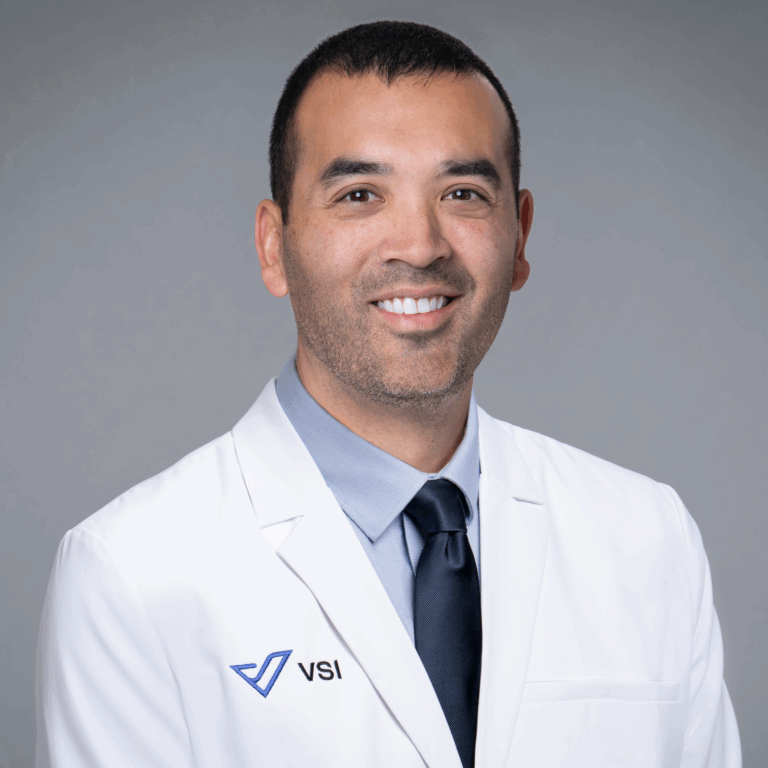
Top 5 Questions to Ask Your Spine Surgeon After Being Recommended Surgery
Being told you need spine surgery is one of those life-changing moments and can be a scary time for anyone. Your mind starts racing and you forget all of the important questions that you want to ask your spine surgeon before agreeing to this procedure. The good news is that I’ve heard it all with my patients before they undergo spine surgery, and I’m here to share some of the most important questions that some of my patients forget to ask (but should ask!) before spine surgery.
1. What is the time of recovery for spine surgery and when will I be back to normal activity?
This is one of the most important questions to ask your spine surgeon before undergoing spine surgery. There is a difference in recovery time for disc replacement surgery and spinal fusions, but generally, you are up walking the same day after the operation. This is all thanks to minimally invasive procedures that allow the smallest incisions possible and minimal muscle cutting, making your recovery all the easier.
After surgery, you’ll be home either the same day or the next day, and can get back to light activity pretty quickly (with the OK from your surgeon), and if your work is sedentary, you can get back to that quickly as well. The important thing is to work closely with your doctor and communicate your progress to determine when you can get back to full activity.
2. Do I need to hire help after surgery to get around?
Only if you want help, will you need help! It’s always nice to have family or friends help take care of any heavy lifting needed after surgery if you have young children or pets that need a lot of attention or even to help prepare some meals for you. But most of my patients have no trouble at all recovering alone at home without hiring help or staying at a recovery center. The great part about being able to recover at home is that you are in your own bed and you’ll even be able to walk up the stairs comfortably. That’s one thing my parents are worried about – but I reinforce that the stairs won’t hurt you!
3. If I’m genetically predisposed to spine pain, what can I do to prevent more surgery down the road?
I love this question because there are things you can not only do after surgery to stay healthy but there are ways you can do this even before surgery as well. Physical therapy and maintaining regular activity with a specialist are a huge help before and after spine surgery. While you can’t stop genetics, you CAN work to prevent any further damage to your spine after spine surgery. Avoid eating unhealthy foods, such as fast food, and don’t smoke (trust me – it does hurt your back!) to avoid overload on the spine. Eating right and exercising also helps strengthen your spine to keep the discs healthy, even if they are predisposed to genetic problems, you can at least delay surgery or avoid it altogether with physical therapy and eating right.
4. Is physical therapy before surgery important? What about physical therapy after surgery?
Speaking of physical therapy before surgery…that’s something we like to call “prehab.” Prehab gets my patients in the BEST shape possible (if they can manage it without too much pain) to help strengthen their bodies, making recovery that much easier. That’s right – working out regularly with a spine-specialized physical therapist before surgery can really work wonders on the length of your recovery after surgery.
With 90% of our patients successfully treated non-surgically, it is our philosophy that physical therapy comes before any surgical discussion. We use physical therapy as an initial treatment option with the goal being to eliminate the patient’s pain and regain functionality before getting to the surgical treatment route. There are times when we don’t use physical therapy before going straight to surgery, but that is few and far between. That path is generally reserved for those patients who show significant symptoms of a spinal condition where, if not treated quickly, they could have a permanent physical impairment.
5. Why would my doctor choose disc replacement surgery over spinal fusion surgery?
When it comes to spine surgery, there is no “one size fits all” solution for our patients.
With a spinal fusion, approximately 10 degrees of motion is lost in the neck, per level fused. For example, if a person has three levels of their spine fused, that equates to a 30% loss of natural motion of the spine. The human body was designed to move, and as surgeons, preserving that motion in the spine whenever we can is inherently beneficial. A spinal fusion would be a great solution for someone whose discs are past the point of being saved with an artificial implant and require more surgical interference. An artificial disc replacement is ideal for a patient whose discs and joints are in a healthy enough condition that they can be “saved” with an implant replacement.
VSI is at the forefront of minimally-invasive disc replacement surgery. We were one of the first practices in the country performing single-level and multiple-level disc replacements. The creativity in our approach to treatment allows patients to receive the most custom solution for their specific condition. In some instances, we combine disc replacement with spinal fusion, known as hybrid spine surgery. Artificial disc replacements provide the benefits of improving range of motion and flexibility after surgery and potentially decrease the risk for additional issues and surgeries in the future.
Topics covered
About the Author
Featured Resources
Insights to Achieve a Pain-Free Life



